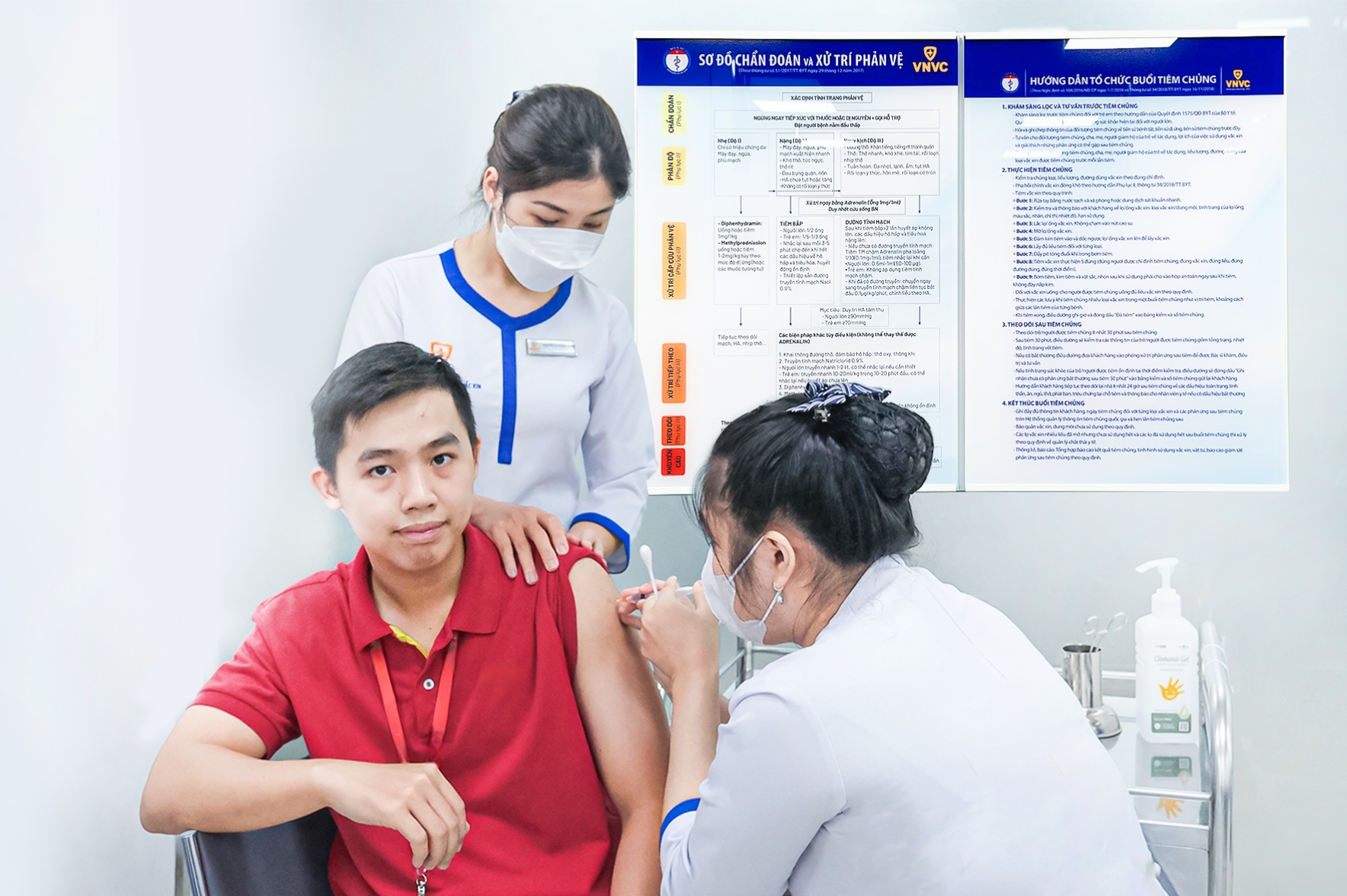Answer:
Jaundice occurs when the body cannot metabolize and excrete bilirubin, leading to an increase of this orange-yellow pigment in the blood. High bilirubin levels cause yellowing of the skin, urine, and eyes.
Numerous conditions can cause jaundice, including impaired liver function due to hepatitis, fatty liver disease, cirrhosis, congestive liver disease, and hepatitis B. Hepatitis B is prevalent in Vietnam, affecting about 10% of the population. The disease often progresses silently and is typically diagnosed in its later stages. Besides hepatitis B, other viruses like A, C, D, and E can also cause jaundice.
Jaundice can also stem from bile duct issues, as this system drains bile from the body. Conditions like gallstones, cholecystitis, and bile duct obstruction hinder bilirubin excretion. Patients may experience jaundice accompanied by pain in the right upper quadrant, fever, and nausea.
 |
Young people receive the hepatitis AB vaccine at the VNVC vaccination system. Photo: Moc Thao |
Consuming large amounts of carotene-rich foods such as carrots, pumpkin, and sweet potatoes can also cause yellowing of the skin. Unlike jaundice caused by underlying medical conditions, this dietary effect doesn't involve yellowing of the eyes, is harmless, and resolves with dietary adjustments.
If you experience jaundice, seek medical attention for accurate diagnosis and appropriate treatment. To prevent disease-related jaundice, maintain a healthy lifestyle, limit alcohol and tobacco use, eat a balanced diet, and exercise regularly to support liver function.
Vaccination is the best way to prevent hepatitis B. If the mother is not infected, newborns should receive the first dose within 24 hours of birth. If the mother has hepatitis B, the infant needs the standard hepatitis B vaccine and an antibody (serum) injection within the first 24 hours to neutralize the virus transmitted from the mother. Following this, the child should adhere to the vaccination schedule for hepatitis B, included in the 5-in-1 or 6-in-1 vaccines.
Adults should have a blood test to check antibody levels and hepatitis B status before vaccination. Those without antibodies or with levels below the protective threshold are recommended to get vaccinated. People who have already had the disease do not need the vaccine. Adults typically receive three doses over six months, with hepatitis B testing before boosters, which are administered if antibody levels drop.
Doctor Nguyen Cong Luan
Medical Manager, VNVC Vaccination System
Readers can submit vaccine-related questions for doctors to answer here.












